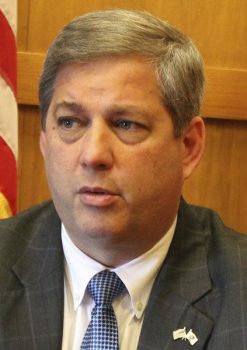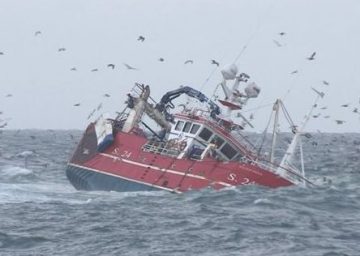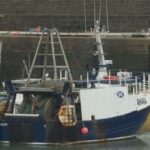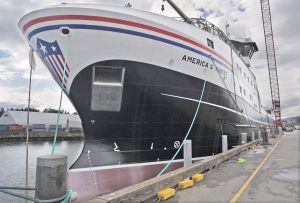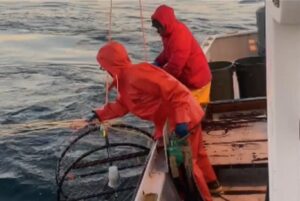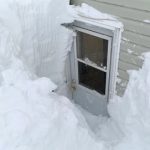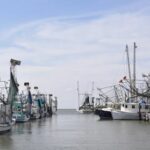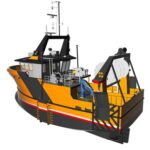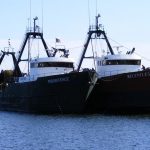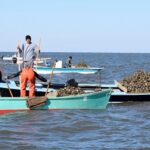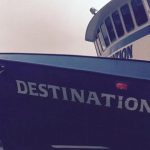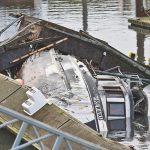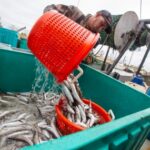Monthly Archives: October 2019
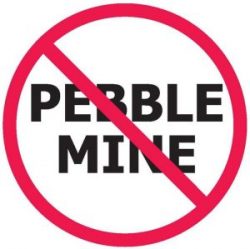
Commercial Fishermen for Bristol Bay thanks House Transportation and Infrastructure Committee for looking into flawed Pebble Mine permitting process
This morning in Washington D.C., the U.S. House Committee on Transportation and Infrastructure hosted an oversight hearing to look into critical issues surrounding the permitting process for the proposed Pebble Mine. Commercial Fishermen for Bristol Bay wishes to thank committee Chairman Peter DeFazio (D-OR) and Chairwoman Grace F. Napolitano (D-CA), co-chairs of the Subcommittee on Water Resources and Environment for shining a light on Pebble’s deeply flawed and rushed permitting process. >click to read< 22:04
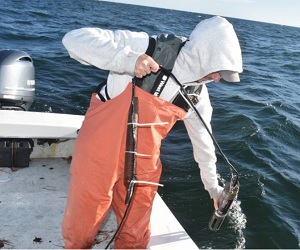
Mysterious Lobster Deaths In Cape Cod Raise Climate Change Concern
Last month, lobstermen in Cape Cod Bay hauled up something disturbing. In one section of the bay, all of their traps were full of dead lobsters. Research biologists went to work trying to solve the mystery, and what they found suggests we may see more of this as the climate changes. But what was killing everything in the traps? “I don’t think any of us have heard reports of that before, at least not like that, where we had multiple fishermen all calling the same day, saying something’s going on,” said Steve Wilcox, one of the Massachusetts Division of Marine Fisheries’ biologists assigned to the case. >click to read< 19:28

Who Are the “Experts” on Climate Change?
We live in complicated times, immersed in a society of incessant, loud, conflicting voices. Nowhere is this more true than in the discussion of the impact of carbon dioxide on the planet, oceans, better known as “climate change.”,,, So who are the “Experts” that we should listen to? For starters it’s important to understand that “Experts” is not a homogeneous collection of people. You can divide Experts into just two very different subgroups: “Real Experts” and “So-Called Experts.” So-Called Experts are like doctors on TV: actors who wear a white coat. They look and sound like the real thing — but clearly they are not. How do we tell the Real Experts from the Imitations? >click to read< 16:26

Efforts underway to streamline fisheries disaster relief
With an increasing number of fisheries disaster requests coming from all over the United States, members of Congress and the federal government are looking for ways to improve the relief process.,, Summer 2018 brought disappointing results for many fishermen across Alaska,,, The slow process isn’t unique to Alaska. ways to improve the relief process, introduced Senate Bill 2346 by Sen. Roger Wicker, R-Miss., in July, seeks to speed up that process, in part by expediting relief funds being disbursed to fishermen. It also seeks to add avenues for relief for non-commercial fishermen, including charter operators. >click to read< 15:00
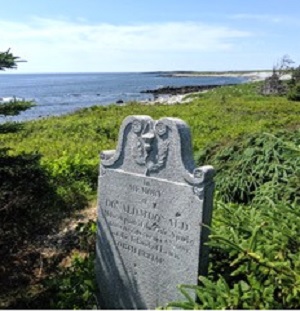
Rough and Plenty: A Memorial, Raymond A Rogers
As a Nova Scotia commercial fisher in the early 1990s, Raymond A. Rogers experienced the collapse of Canada’s East Coast fishery first-hand. During that difficult, painful, and confusing time, Rogers noticed a lone gravestone across the road from his home in Shelburne County, Nova Scotia. It was the gravestone of Donald McDonald,,, The encounter with McDonald’s gravestone inspired Rogers to explore the parallel processes of dispossession and how local communities are decimated by the imposition of new ways of life.,, Similarly, as small-scale artisanal participants in an increasingly industrialized fishery, the inshore fishers were eventually seen as inconsequential and inefficient, and when the fish stocks began to collapse, and there was a consensus that there were “too many boats chasing too few fish,” it was the inshore quotas that were cut. This forced the artisanal fishers out of the industry. The privatization of fish quota became an industry-funded down-sizing strategy that rewarded those with the deepest pockets. >click to read< 13:28
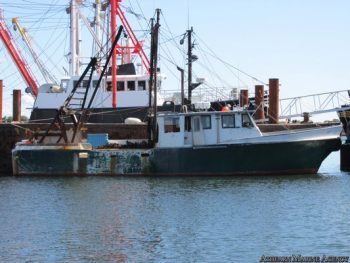
Athearn Marine Agency Boat of the Week: 57′ DMR Scalloper, 350HP Cummins, 12 KW Genset
Specifications, information and 26 photos >click here< Vessel is in good condition. Vessel has had extensive work done in past 2 years. To see all the boats in this series, >click here< 12:42
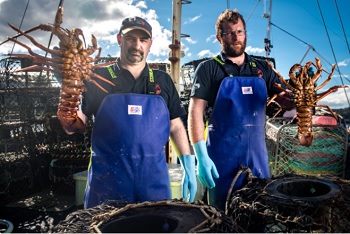
The ups and downs of being a Tasmanian lobster man
Lobster man Brendan “Squizzy” Taylor happily admits to loving his job, but the overheads are huge, and when he’s under the financial hammer and his pots start coming up empty – or are full of lobster killed or disfigured by octopus – it’s not a lot of fun. But at least Taylor gets to enjoy grilling up some fresh octopus for himself, right? “No,” he says, without a trace of his usual humour. “I hate ’em.,, “I remember leaving school, jumping on a cray boat, going around the west coast for seven or eight days,” he says. “I was seasick for three days non-stop, had to work 18 hours a day and I remember thinking, ‘I can’t do this. This is way too hard. I can’t do it physically or mentally.’ >photo’s, >click to read< 11:15
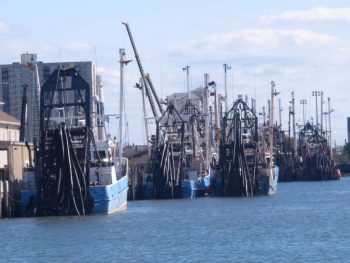
Commercial and conservationist interests competing fiercely for space on increasingly crowded seas
A conference Tuesday at New Jersey’s Monmouth University brought together industry and environmental groups, who agreed that communication and coordination are essential to sharing the ocean. “Ocean activity is on the rise, and it’s exponential,” said Timothy Gallaudet, deputy administration of the National Oceanic and Atmospheric Administration and a retired rear admiral with the Navy. “There has been 400 percent growth in ocean activity over the last 25 years.” >click to read< This is my footnote. If you are in the fishing industry, you are being marginalized, sold out. You better figure out who’s on your side, fast, or simply be eliminated. 09:13

What to watch for as Pebble Mine permitting process picks up, with link to live hearing @10:00
As the timeline shortens, developments are picking up at a rapid pace. Wednesday morning, seven witnesses are scheduled to testify before the U.S. House Transportation Subcommittee on Water Resources and Environment. Aside from Pebble Partnership CEO Tom Collier, all other witnesses have been critical of the proposed project. Thursday is the deadline for the EPA to notify the U.S. Army Corps of Engineers whether it believes the proposed mine will have a “substantial and unacceptable impact on aquatic resources of national importance.” >click to read< 08:05
The Pebble Mine Project: Process and Potential Impacts, hearing starts at 10:00 today, >click to listen in<
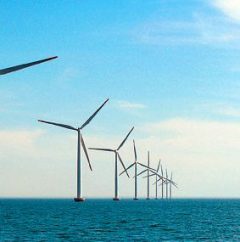
Stonington fishermen say windfarm developer not responding to their concerns
Joe Gilbert, who has a fleet of four commercial boats based at the Stonington Town Dock, said he met with John O’Keefe, head of marine operations for Ørsted, in March to discuss the “vast” concerns that he and other fishermen have ranging from potential environmental impacts to spacing in between turbines. The meeting, which lasted several hours, was productive with O’Keefe taking copious notes, Gilbert said. “I thought it was the beginning of an open dialogue between the wind developer and the fishermen,”,, Gilbert said he never heard back from O’Keefe about how Ørsted plans to address the issues, even after following up multiple times with him and other company officials. Eventually, he and a group of Stonington fishermen were offered a meeting,,, >click to read< 21:05
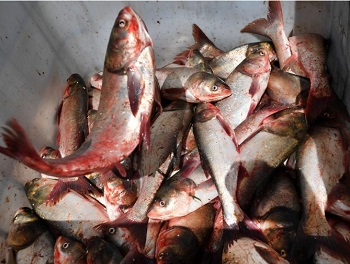
U.S. Senate’s proposed $14 million funding increase to fight Asian carp not matched in House budget
Last month, the Senate Committee on Appropriations approved a funding bill that included $25 million for Asian carp management, a $14 million increase from last year. That money would go to the U.S. Fish and Wildlife Service to be divided nationally for areas dealing with the fish. At the time, U.S. Sen. Lamar Alexander, R-Tenn., was hopeful the bill would give areas including Tennessee more resources to deal with the threat.,, The funding increase would be used to expand a block and tackle plan. The plan includes installing sound barriers that would keep carp from traveling through dams and then paying commercial fishermen to harvest the fish. >click to read< 19:26
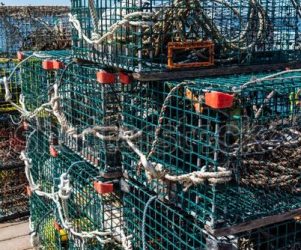
Opinion: Maine’s plan for lobster lines an improvement
A federal proposal to cut fishing lines off the Maine coast was dead in the water to lobstermen, who said it would put either their lives or ability to make a living at risk.,,, The federal proposal, released this summer, called on Maine to reduce the number of surface-to-seabed buoy lines by 50 percent in both state waters, which run out to three miles from shore, and federal waters,,, lobstermen were right to be wary of the proposal. And since industry buy-in is necessary to make any plan work, the state was right to put forward its own proposal. >click to read< 16:33

EnBW North America hires fisheries liaison
EnBW North America has appointed Beth Casoni as the company’s fisheries liaison and has joined the Responsible Offshore Development Alliance’s (RODA) joint industry task force devoted to address issues of mutual interest to commercial fisheries and offshore wind. The company said its immediate attention is on the New York Bight – an area off the coasts of New York and New Jersey, where the federal Bureau of Offshore Energy Management is expected to auction wind lease areas in late 2020. >click to read< 11:22
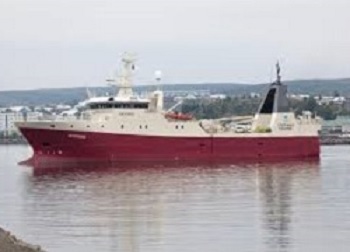
Estonian fishing company Reyktal to start NW Atlantic prawn fishing next fall
The last time that ocean fishing vessels sailing under the Estonian flag fished for prawns in the Northwest Atlantic’s NAFO 3M area was approximately 10 years ago. Mati Sarevet, head of AS Reyktal, said that the company will likely return to the familiar waters next fall. He added that it is still too early to estimate how big of a share prawns caught in the Northwest Atlantic could make up of the company’s production. >click to read< 10:37
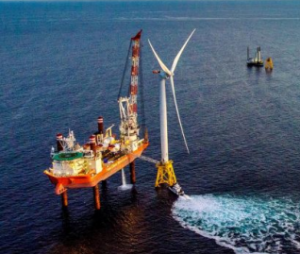
Offshore Wind Getting Crushed by Carbon Capture
Guest table-turning by David Middleton. Ms. Casey has a BA in philosophy, is a career bureaucrat. and has held several part time jobs with enviro-nitwit websites. Hence, she’s an energy expert. Whatever offshore wind power may or may not do in the future, is irrelevant to the fact that it’s currently only “crushing” the budgets of energy consumers.Offshore Wind vs. Carbon Capture: Who’s Crushing Whom? The US currently has one of each up and running. The energy math is decidedly one-sided. Block Island Wind Farm, The Block Island Wind Farm generates much less energy than an average single Marcellus gas well. In it’s first year of operation the Block Island Wind Farm managed a 39% capacity factor. >click to read< 09:14
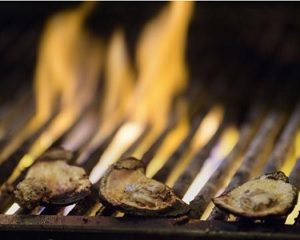
‘It’s grim.’ After spring floods, Louisiana oyster harvest slows to a trickle
Fall is when Louisiana normally begins harvesting a torrent of oysters. This year, the torrent is barely a trickle. Restaurants have resorted to rationing. They’re reaching far beyond their normal local supply chains to get whatever boxes and sacks of oysters they can find, revising menus and tapping stockpiles of frozen product to keep fried oysters on their po-boys and seafood platters. Many in the business are calling the shortage the worst they’ve ever seen, worse than the aftermath of hurricanes Katrina and Rita in 2005 or the BP oil spill disaster in 2010, both of which devastated the local industry. Photo’s >click to read< 08:29
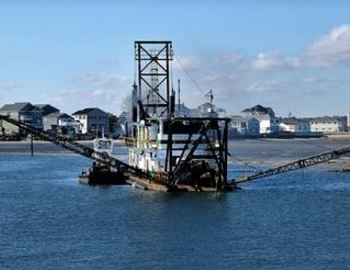
Hampton-Seabrook Harbor dredging begins – here’s why it’s vital
Work has begun on the dredging of the Hampton-Seabrook Harbor, a project local and state officials have said was urgently needed to protect the Seacoast’s fishing and seaside economy.,,, Keith Johnson of H&L Contracting, whose company is doing the work, said those who use the harbor will still be able to use it while the work is ongoing. Army Corps of Engineers project manager Coral Siligato said the work is scheduled to take place through March 15. The inner harbor work is slated to be completed by Feb. 1. >click to read< 07:14
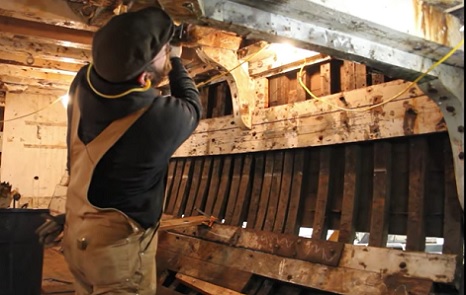
Righting John Steinbeck’s Storied Ship, Western Flyer Gets a Plank-by-Plank Restoration and Soul Re-Infusion
In 2013, the fishing vessel Gemini, a purse seiner built in 1937, was hauled up from the bottom of the Swinomish Channel in the Pacific Northwest. The event wouldn’t have drawn much attention had this old wooden fishing boat not had such a storied past. In 1940, the novelist John Steinbeck and his friend, marine biologist Ed Ricketts, chartered the sardine fisher under the name Western Flyer,,, Luckily, when the boat sank for what was the third (or maybe even fourth) time in her history, she was not far from Port Townsend, the Northwest’s hub of wooden-boat restoration. The Western Flyer soon found a home at the Port Townsend Shipwrights Co-Op, and her new owner started a nonprofit foundation to oversee an ambitious—and expensive—restoration project. >Video, photos, click to read< 20:19
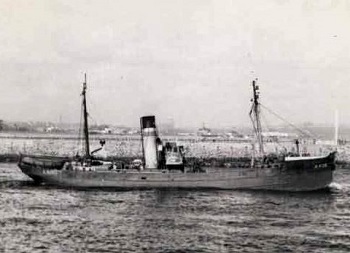
Families sought to attend 60th anniversary service for victims of George Robb trawler disaster
The journey began in Aberdeen with a crew of mostly young men hoping they might secure a Christmas bonus for their loved ones. But it ended in disaster when 12 sailors aboard the George Robb trawler, skippered by 31-year-old Marshall Ryles, were killed in the midst of a horrific storm off Duncansby Bay in Caithness en-route to the Faroes in December 1959. The disaster – which claimed a 13th victim when one of the rescuers, Eric Campbell, succumbed to a heart attack – led to 34 children losing their fathers as communities grieved across the Granite City. >click to read< 17:29
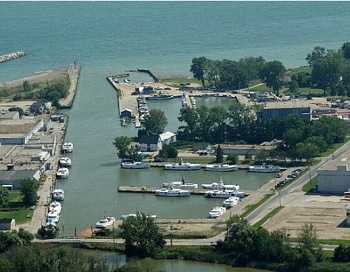
‘Worse now than it’s ever been’: Wheatley, Ont. harbour not safe, says fisherman
“This has been going on since the ’70s,” said Bobby Cabral, who took over his father’s business and has been fishing out of Wheatley Harbour since 1998. “It’s worse now than it’s ever been.” Cabral battles his fishing vessel in and out of the harbour on an almost-daily basis, fighting over a sandbar which keeps building up in his path. He’s one of about 35 commercial fishing vessels operating out of the harbour — vessels which bring about $9.7 million in annual landings. >click to read< 16:16
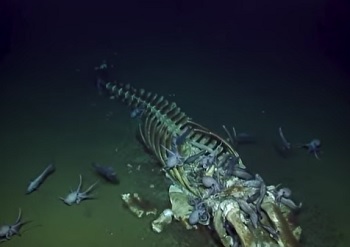
“Oh, here we go, baby!” Watch: Researchers stumble across a whale carcass teeming with marine scavengers
When whales die in the open ocean they sometimes sink to the sandy floor where scavenging fish and other marine creatures tuck into the colossal feast. Octopuses, deep-sea fish, crabs and bone-eating worms all turn up for dinner. But there’s one species in particular that gets über-excited when a whale carcass hits the ocean floor: marine researchers. A team from Monterey Bay National Marine Sanctuary aboard research vessel Nautilus were exploring the ocean depths off the coast of central California recently when they happened upon a baleen whale carcass. >click to read/watch< 15:12

Fishing chief says No Deal only way to exit the EU on time – and save dying UK industry
Campaign group Fishing for Leave (FFL) is fighting to take back control of British waters and the fishing industry connected to it. FFL slammed the Yellowhammer document, that suggested around 300 EU boats would sail in British waters “illegally” after Brexit. The group have stuck by their mantra of a No Deal being the best way forward for the UK’s departure from the bloc. >click to read< 12:19
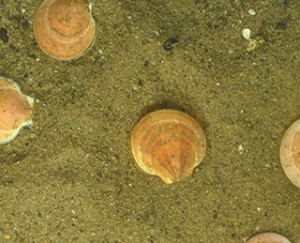
Federal Fishing Expansion Could Endanger Right Whales
Trump regulators opened about 3,100 square miles of ocean to fishing for scallops and fish that live near the bottom of the ocean such as halibut and flounder that had been closed for more than two decades, including a section of Georges Bank off Cape Cod, Mass., and part of the ocean near southern New England.,, A scallop fishing industry group, Fisheries Survival Fund, said no scallop vessel has ever had an interaction with a right whale. >click to read< 11:29
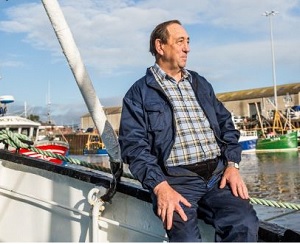
‘Britain ruled the waves. It was took off us by the EU . . . the dogs’
Leslie Garvan, a trawler owner from Kilkeel in Co Down who has done well out of fishing, wants to take back what he views as rightfully British. “Go back to f**kin’ [Horatio] Nelson, if you like. Britain ruled the waves then. It was took off us by the EU . . . the dogs,” says the 76-year-old, who has been going to sea from Kilkeel since 1959. Following Thursday’s Brussels deal, senior Northern Irish fishing figures are bullish. It will be for the EU to make concessions to negotiate access to UK waters. >click to read< 21:56
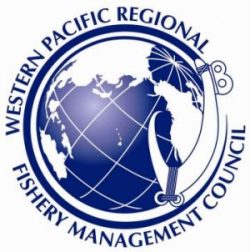
Western Pacific Fishery Management Council meeting October 21–24 in Pago Pago, American Samoa.
To read the meeting agenda, and all related meeting material of the 180th Council Meeting, >click here< 20:15
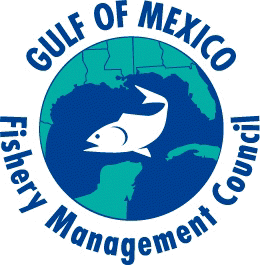
Gulf of Mexico Fishery Management Council meeting in Galveston, TX, October 21 – 24, 2019
Gulf of Mexico Fishery Management Council meeting October 21 – 24, 2019, at The Tremont House, 2300 Ship’s Mechanic Row, Galveston, TX. >click to review Agenda, and supporting documents< Listen to the meeting online, >click to listen< 19:48
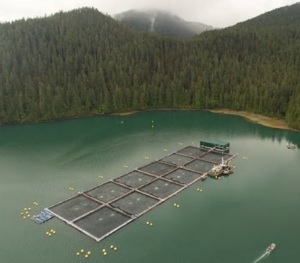
LETTER: On the future of salmon farming in B.C., Ecologists have been sounding the alarm for decades
For the first time ever, three political parties have pledged to transition open net pen fish farms on the B.C. coast to completely closed (likely land based) systems. Environmental sensibility and ecological responsibility are winning out over a regime where predominantly Norwegian multinationals come to our waters to pollute for free. The science is increasingly clear: open net pen farming is harmful to wild salmon and presents unacceptable risk to a keystone species and everyone and everything that rely on it. >click to read< 17:04
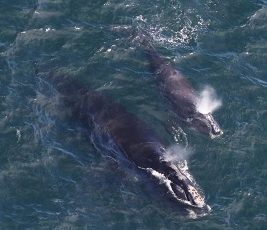
Maine’s lobstermen willing to work with feds to protect whales
The Maine Lobstermen’s Association is one of the key stakeholders in an effort to better protect the North Atlantic right whales,,, A federal plan that’s being developed to help save the whales would remove miles of lobster trap rope from the waters off Maine.,, regulators have also recently expressed desire to work with the lobstermen, who have said the whale protection plan placed too much onus on their business, which is an industry vital to Maine’s economy. Chris Oliver, NOAA’s assistant administrator for fisheries, said this month that federal managers are also “diligently working with our Canadian counterparts to address both ship strikes and entanglements in Canadian waters.” >click to read< 14:18






